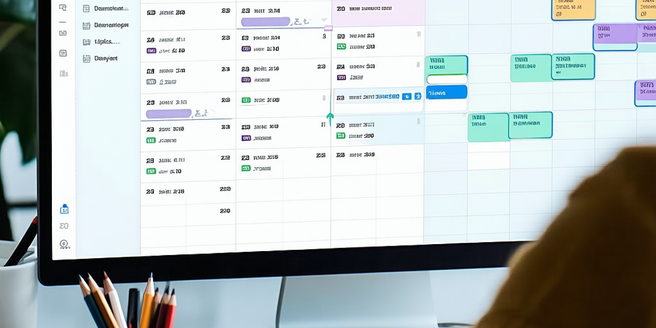
Boosting Productivity through Accurate Time Logs
Time-tracking software can significantly enhance productivity by providing detailed insights into how time is spent across various tasks and projects. Accurate time logs eliminate guesswork, ensuring that every minute is accounted for, enabling teams to identify patterns and areas where efficiency can be improved. By understanding where time is lost, businesses can implement strategies to streamline processes and focus on priorities, reducing unnecessary activities. Moreover, accurate time tracking allows for better deadline management, as employees are more aware of time constraints and can adjust their work pace accordingly. This proactive approach not only boosts productivity but also increases accountability, as team members become more conscious of their time usage. Overall, precise time logs are a foundation for a productive work environment that values efficiency and effectiveness.
Enhancing Project Management with Real-Time Insights
Integrating real-time insights from time-tracking software into project management processes can revolutionize the way teams work. With instant visibility into how time is allocated, project managers can make informed decisions that steer the project toward timely completion. These insights help identify any bottlenecks or delays, allowing quick corrective actions to be taken. Moreover, real-time analytics facilitate better resource allocation, ensuring that tasks are assigned according to team members’ availability and expertise. This level of visibility also enhances communication among stakeholders, as everyone is on the same page regarding project progress. By leveraging real-time data, businesses can improve project delivery outcomes, minimize risks, and achieve strategic goals effectively. Ultimately, time-tracking software provides the intelligence needed for more adaptive and responsive project management.
Streamlining Payroll Processes with Automation
Time-tracking software simplifies payroll management by automating the process of calculating work hours, overtime, and other related metrics. This automation reduces the likelihood of human error, ensuring that employees are paid accurately and on time. By integrating with payroll systems, time-tracking solutions provide a seamless flow of data, eliminating the need for manual entry and reducing administrative burdens. This not only saves time for HR teams but also enhances compliance with labor regulations, as precise records are maintained for audits. Additionally, automation in payroll processes increases transparency, allowing employees to access their work-related data and verify their paychecks with confidence. Streamlined payroll systems contribute to an overall increase in operational efficiency, allowing businesses to focus more on strategic activities rather than administrative tasks.
Identifying and Minimizing Time-Wasting Activities
Time-tracking software offers vital insights into daily activities, helping to pinpoint unproductive time sinks. By logging time spent on various tasks, teams can identify which activities contribute little to overall goals, allowing them to minimize or eliminate these inefficiencies. This data empowers managers to conduct detailed analyses and reallocate resources more effectively, focusing on high-impact activities that drive progress. Furthermore, the visibility into time-wasting activities encourages employees to self-reflect and adapt their work habits. By recognizing these patterns, teams can adopt sharper prioritization and better task management, leading to significant productivity gains. As a result, the organization can streamline operations, optimize workflows, and create a culture of continuous improvement. Minimizing time-wasting activities ultimately assists in maintaining competitive advantage in a dynamic market landscape.
Improving Employee Accountability and Transparency
Implementing time-tracking software fosters a culture of accountability and transparency within the organization. By accurately recording work hours and task completion, employees are more accountable for their time management and output. Transparent time logs promote trust between team members and management, as everyone is aware of workload distribution and individual contributions. This openness helps prevent misunderstandings and disputes over task ownership or productivity levels. Moreover, access to personal data encourages employees to take responsibility for their work habits and make necessary changes to enhance their performance. With time-tracking software, managers can also provide more targeted feedback and support, enhancing professional development. The increased accountability and transparency result in a motivated workforce, committed to achieving collective success and fostering a positive workplace culture.
Facilitating Better Work-Life Balance for Teams
Time-tracking software plays a crucial role in promoting work-life balance by providing insights into time management and workload distribution. By accurately logging hours worked, employees and managers alike can identify when work demands encroach on personal time, allowing for timely interventions. These insights can guide the reallocation of tasks to prevent burnout and ensure a healthier work environment. Employees gain the ability to monitor their own work habits and make adjustments, promoting a more balanced approach to professional and personal responsibilities. Moreover, managers can utilize this data to advocate flexible working arrangements and provide support tailored to individual needs. By fostering a culture of balance, organizations can improve employee satisfaction, reduce turnover rates, and enhance overall productivity. Time-tracking software thus supports a sustainable work-life integration for all team members.
